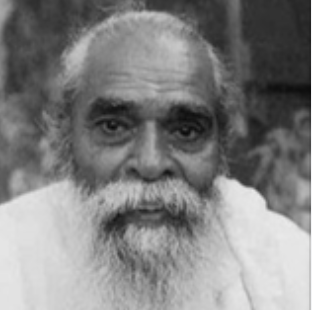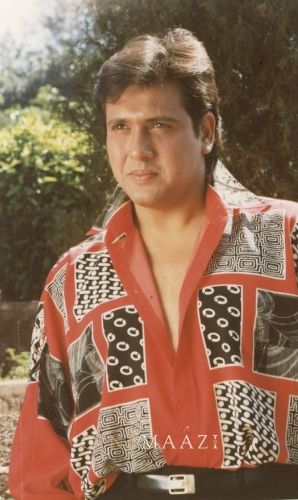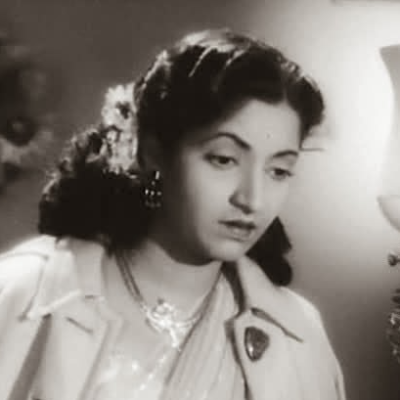K Datta
- Real Name: Datta Korgaonkar
- Born: 4 June, 1908 (Sawantwadi, Konkan)
- Died: 23 December, 1978 (Bombay)
- Primary Cinema: Hindi
- First film: Chandrarao More (1939)
Music composer Datta Korgaonkar or K Datta, as he was generally called, is known for his work in films such as Maharathi Karna (1944), Yateem (1945), Shaahkaar (1947), Rangmahal (1948), Daman(1951), Rishta (1954), Harihar Bhakti (1956), and Ajanabi (1966). Stepping into the film industry to score music for Marathi films, the first Hindi film he scored music for was Mera Haq (1939), followed by Alakh Niranjan (1940), Geeta (1940) and Yaad (1942). Annasaheb, as he was addressed, was known to be enamoured of Noorjehan’s voice and singing style, composing approximately 11 songs for the singer-actress in films such as Nadan (1943), and Badi Maa (1945). When she left for Pakistan post Partition, he rued that she had taken his creativity along as well. Incidentally, he is also said to have given the Mangeshkar sisters Lata and Asha a break singing in the chorus along with Noorjehan.
He was born Datta Korgaonkar in Sawantwadi in Konkan on 4 June in 1908, and grew up learning to sing. With his mother being a known Bhajan singer, he began singing on stage during special Ganesh festival events and fairs. He went on to found a music school, Gayan Kala Mandir, along with another singer Sadashiv Nevrekar. When Nevrekar became a music director, Datta also decided to become one and closed down the school.
Called to Kolhapur in 1937 to give music to a Marathi film, he made his debut with General Films’ Chandrarao Morey (1938). A year later, he debuted in Hindi films scoring music for Mera Haq which was made in Hindi as well as Marathi. This was followed by Alakh Niranjan (1940) and Geeta (1940) both made in Hindi and Marathi, as well as Yaad (1942).
It was during his assignment scoring music for Naadaan (1943) that he first came in contact with singer-actress Noorjehan. Enthralled by her voice and singing style, he composed seven songs that were rendered by her. Scoring music for Zameen (1943) and Maharathi Karna (1944), he composed four songs for Noorjehan in the film Badi Maa (1945), namely Aa intezar hai tera dil beqarar hai mera, Diya jalakar aap bhujaaya, Kisi tarah se mohabbat mein chain paa na sakey, and Tum humko bhulaa baithe ho. He evidently also gave the Mangeshkar singers Lata and Asha a chance to sing in a chorus with Noorjehan.
A Noorjehan believer to the core, he deeply regretted the singer’s migration to Pakistan post-Partition, claiming that she took his creativity along. The four Noorjehan numbers he composed for Badi Maa are historically important. It was by hearing and absorbing these four Noorjehan songs, while acting with her in Badi Maa, that Lata Mangeshkar learnt to hone her vocal technique. It also explained why Lata Mangeshkar came to sound so similar to Noorjehan for a long time. His last number for Noorjehan fetched him a huge compliment from filmmaker Mehboob Khan, who is said to have commented, “Bhai Datta, yeh gaana to aap ne Khuda ke darbar mein baithe hue banaya lag raha hai” (“It sounds as if you created this song sitting in God’s abode”).
K Datta went on to score music for films such as Yateem (1945), Shaahkaar (1947), Rangmahal (1948), Meri Kahani (1948), Daaman (1951), Gumaasta(1951), Rishta (1954), Harihar Bhakti (1956) and Ajanabi (1966). As an independent music director, he composed music for 17 films, as well as Badmash (1944) which he scored with Khan Mastana. Between 1938 and 1965, he composed music for 12 Marathi films.
Datta’s music for Daaman was also appreciated, as Lata Mangeshkar, whom he favoured for his Marathi film songs, rendered memorable songs such as Tirulilla tirulilla and Chakori ka chanda se pyar. Daaman also featured the first-ever duet of the sisters Lata and Asha, namely Ye ruki ruki hawaen.
Retiring from scoring music post-1965, Datta involved himself in bhakti, puja and astrology. He was known to conduct a special puja every Thursday, at which bhajans were sung, and which were attended by several composers and industry folk. Regular visitors at his residence included Naushad, C. Ramchandra, Madan Mohan, and Sajjad Hussain among others.
K Datta passed away following a heart attack in Bombay on 23 December, 1978.







.jpg)


